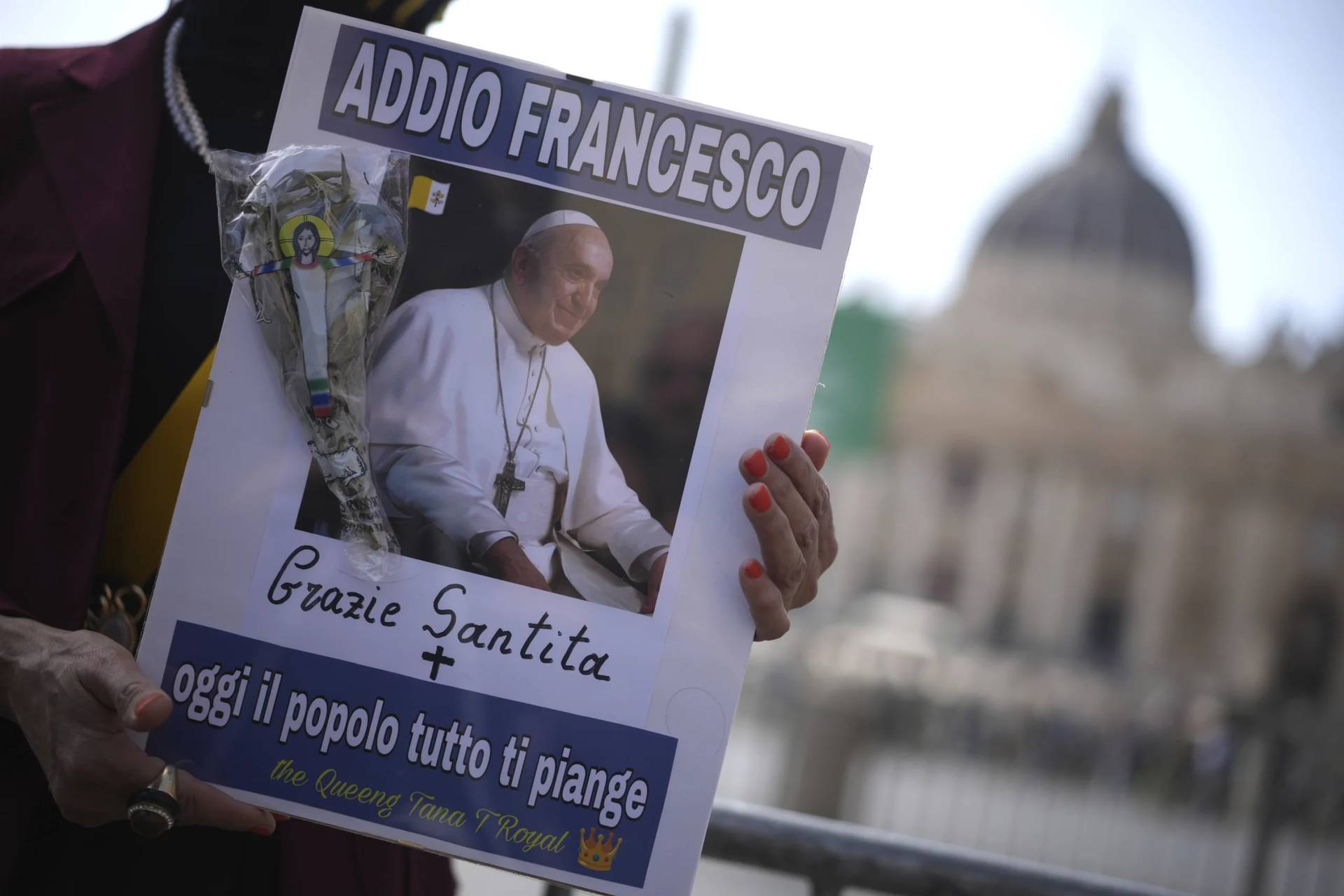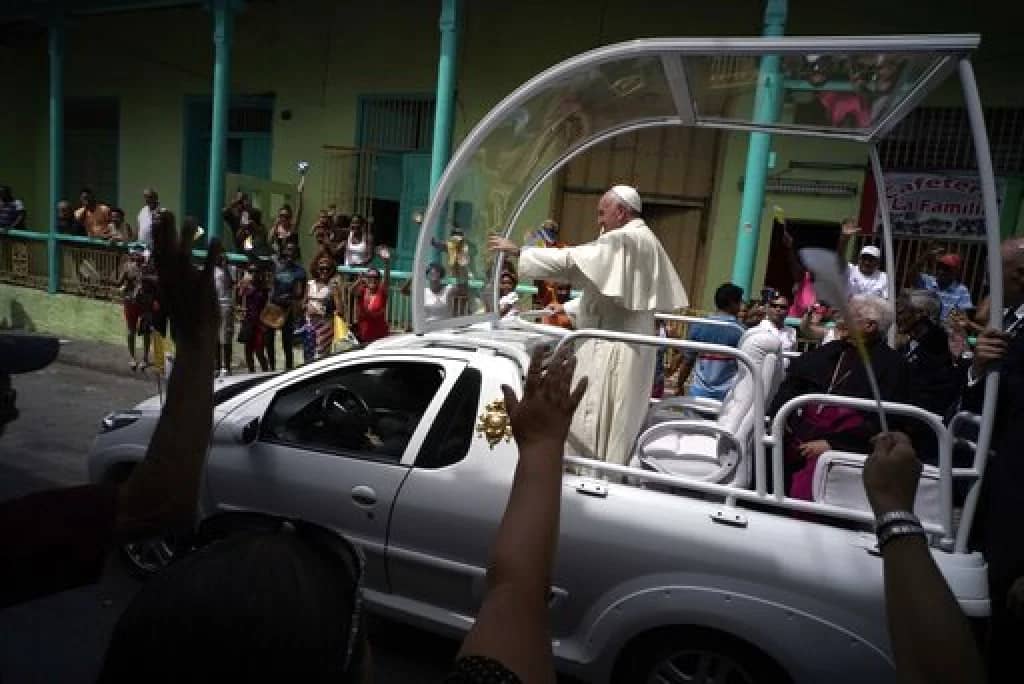ROME – When I first arrived in Rome to cover the Vatican in the 1990s, every time I’d meet an English-speaker around town, sooner or later they’d all ask the same question, inevitably with an amused twinkle in their eye: “Have you met Reggie Foster yet?”
They’d tell me he was the pope’s Latinist, which didn’t exactly seem to make meeting him the most riveting prospect. At first I thought maybe it was some kind of nerdy ex-pat form of hazing, to gaslight the new guy into meeting the biggest bore around just for kicks.
In fact, getting to know Foster was an initiation ritual, but hardly because Foster was dull. On the contrary, he was, quite simply, the most fascinating, most unbelievable, most “what in God’s name is this guy doing in the Vatican?” personality to stalk the corridors of the Apostolic Palace in, probably, the last 100 years.
When Foster died on Christmas Day at the age of 81, the Vatican lost one of its most technicolor characters of all time, and the Catholic scene generally became a bit grayer.
One way of explaining who Reginald Foster was is by saying he was a member of the Discalced Carmelites from Milwaukee, who went to Rome to study in 1962, at the beginning of the Second Vatican Council, and who entered the Latin Letters Office of the Secretariat of State in 1970. He would would remain there for the next 40 years until heading back to Milwaukee in retirement in 2009. On the side, he taught Latin at Rome’s Gregorian University and in a special summer academy he ran out of an empty school next to his Carmelite college.
Those biographical essentials, however, don’t even begin to capture the man.
When I did meet Foster for the first time, it was in his Vatican office in the Apostolic Palace. I’d called to arrange an appointment, and, when I was asked what time I should drop by, his reply was, “Why the hell should I care? I’m working all morning, and you’re not the most important thing I have to do.”
I walked down the ornate, frescoed hallways of the place, found his office, and knocked on the door. When I walked in, I was startled – there was a desk with some papers, a Latin dictionary and a typewriter, a phone, and nothing else. There were no pieces of art, no grand wooden shelves, no drawings of saints or photos of popes, nothing. I would later learn this was part of the Foster ethos, as he slept on the floor in his Carmelite residence under a thin blanket and gave away pretty much every possession except for his books.
What truly blew me away, however, were Foster’s clothes. He looked like a plumber, not the world’s leading master of the Latin language and a Vatican potentate, sporting blue work pants and a blue worker’s jacket. (I would later learn that his father, brothers and uncles were, actually, all plumbers.)
As I tried to take it all in, I finally asked where his picture of the pope was. Vatican offices are a bit like civil service offices in the UK, in that they all have images of the Queen, and it was striking to see one missing the pope’s image. Foster launched into an expletive-laden anecdote about how a workman had once shown up with a ladder and a portrait of the pontiff, apparently at the direction of a superior irked by Foster’s defiance.
“I told him to get that blanking thing the blanking blank out of here, and don’t blanking come back,” Foster told me, without suggesting for a moment it was the least bit remarkable.
Foster then asked what I wanted, and I told him I hoped he’d give me the benefit of his experience in the Vatican. He rolled his eyes and told me to get out while I could, then told another story about a run-in he’d allegedly once had with a Vatican bigwig who wanted to reprimand him for his style of dress. As Foster told the story, the conversation ended with him quoting the Bible.
“What the hell has the Bible got to do with anything? This is the Holy See!” is how he recalled the monsignor answering.
To this day I have no idea if that actually happened, or if Foster was just pulling my leg – but if it happened to anybody, I’d bet good money it was him.
How did Foster get away with it? In a word, he was living proof that being indispensable is the ultimate get-out-of-jail-free card.
Foster had a unique flair with Latin, which meant that anytime a papal bull or decree or rescript needed to be rendered into what is still the language of the Acta Apostolicae Sedis, the Vatican’s official register of legal acts, he was the man. His first assignment forty years ago was to compose a note of congratulations for infamous Ugandan dictator Idi Amin — Foster always claimed he couldn’t remember what Paul VI wanted to compliment Amin on — and, for the next forty years, he was the Latin voice of three popes.
The next time you’re in the Vatican and use one of the ATM machines in the place, for example, you can choose the Latin option for your withdrawal (keep the receipt) and give a nod to Reggie. As one his colleagues in the Latin Letters office put it, Foster was “one of the greatest masters of the Latin language since the Renaissance.” A former student once said that learning Latin from Foster was “like learning painting from Picasso, or music from Mozart.”
On a personal level, Foster’s sympathies were always for the working stiff, the little guy and the underdog.
His students love him with a passion that surpasses understanding; his academic managers, on the other hand, couldn’t stand him, resenting the way he refused to kick out people from his classes at the Greg who hadn’t paid for the course. The worker bees at the Vatican, Swiss Guards, police and firemen all saw him as one of their own, and he loved them back; to this day, a large logo of the Milwaukee Fire Department is on the wall of the Vatican’s own fire station, a gift from Foster. Yet when he’d give one of his legendary informal Vatican tours to friends, he’d breeze right by cardinals and monsignors without so much as a “by your leave.”
Given his option for the underclass, Foster’s ecclesiastical politics naturally ran a bit to the left. When Milwaukee’s legendary liberal Archbishop Rembert Weakland ran afoul of the Vatican in 2001 over the redesign of his cathedral, Foster penned the Latin text for a plaque installed at the rededication ceremony, which reads: “This Cathedral was restored, not without difficulty, exactly according to the norms of liturgical renewal established by Vatican Council II,” an obvious raspberry directed at the then-head of the Vatican’s liturgy department, Chilean Cardinal Jorge Medina, who’d tried to block the whole thing.
Later, Foster agreed to appear in comedian Bill Maher’s 2008 documentary “Religulous,” in which, among other classic Reggie-isms, Foster told Maher about the doctrine of hell: “That’s the old Catholic thing … that’s all gone, it’s all finished.” He proceeded to tell Maher about a poll in which Italians were asked who they would pray to in a crisis and Jesus Christ actually finished in sixth place, all the while rolling his eyes and harrumphing in clear Catholic self-mockery.
Yet Foster was also a man of deep faith, who walked the talk. I lost track over the years of how many times I’d be walking across Rome and spot Foster sitting on a bench for the bus giving a sandwich to a homeless person, or chatting up a beggar outside a grocery store, or helping an old Italian lady find her way. He was legendarily impatient with stupidity and pretense, but he had infinite patience for those in real need.
Reggie Foster was, simply, one of a kind. It’s a hackneyed reference, I know, but if ever there was a character since King Hamlet for whom it’s a fitting epitaph, Shakespeare’s words fit Foster like a glove:
“He was a man. Take him for all in all.
I shall not look upon his like again.”
Requiescat in pace.
Follow John Allen on Twitter at @JohnLAllenJr.














